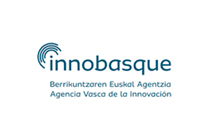 Past events: Gojko Žarić, PhD. Neural correlates of (dys)fluent reading acquisition in typically reading and dyslexic children
Past events: Gojko Žarić, PhD. Neural correlates of (dys)fluent reading acquisition in typically reading and dyslexic children
Gojko Žarić, PhD. Neural correlates of (dys)fluent reading acquisition in typically reading and dyslexic children
When: 12:00 PM, noon
Fluent reading requires both fast recognition of written text and an automatic link to the speech sounds that these letters represent. My research investigates brain mechanisms underlying both processes in typically reading and dyslexic populations. In this talk I will present results of my electrophysiological and DTI studies. Measurement of electrical brain responses in crossmodal oddball paradigm showed that impairments in the neural coupling of letters and speech sounds relate to the severity of reading dysfluency in dyslexic children. Moreover, results of a dyslexia training study demonstrated that letter-speech sound training lead to a moderate improvement in reading fluency, and that the level of improvement relates to the severity of the underlying deficit. Furthermore, the electrophysiological connectivity study revealed that patterns of connectivity may depend on the level of reading dysfluency, with disrupted visual processing of words in both dyslexic groups, together with a compensatory recruitment of right posterior brain regions especially in the severely dysfluent dyslexics. Finally, the results of a DTI study revealed structural connectivity differences between dyslexic and typical readers in the bilateral anterior thalamic radiations, which scaled with reading related measures. The finding of these studies will be discussed in relation to the hypothesis that dyslexic readers suffer from letter-speech sound integration deficit.









